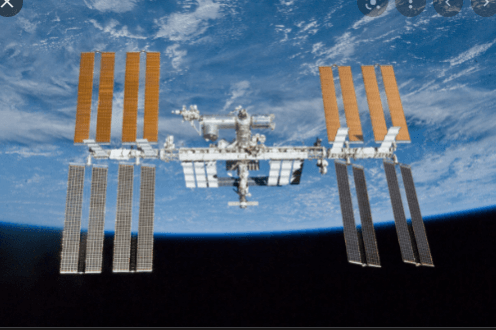American space infrastructure developer Axiom Space has invented a new program that will allow countries to create human spaceflight without developing additional infrastructures for these missions.
As the company is aiming to own and operate the World's First Commercial Space Station in 2025, the programme announced on April 17 offers countries a tiered approach to conduct research on International Space Station or its future commercial space station along with flying their astronauts.

In an interview during the 38th Space Symposium, Tejapaul Bhatia, Chief Revenue Officer at Axiom, said that human space flight program is effectively a ''space program in a box''. He said that "the real key is that turnkey access at affordable, sustainable and predictable rates."
The four-tier system that will be used in Axiom's human spaceflight is equipped with specific functions. The base tier provides countries with advice and insight and gives those countries priority access to upcoming missions. Research and development activities by countries are enabled with the second tier, whereas the third tier offers human spaceflight missions on a regular basis. A fourth tier offers countries the ability to co-develop parts of Axiom's station.
Azerbaijan was the first country to join the programme. It will work with Axiom on satellite solutions and persuade students to engage in space research and development activities. New Zealand and Uzbekistan are also participating. Rakia Mission, an Israeli space education and research organization involved with the Ax-1 private astronaut mission to the ISS a year ago.
Italy is also working with Axiom. Its partnership dates back to 2018. In 2023, an Italian Astronaut is slated to fly on Axiom's Ax-3 mission to the ISS. In May, astronauts from Saudi Arabia are flying on the Ax-2 mission.
Bhatia added: "Everything to date has been very a la carte with the customers, and it's built off the old model of cost per kilogram. Now we're trying to build long-term relationships with them. There's a limited set of customers, you know who the buyers are and they have budgets."
The second part of the market is made up of private astronauts. He said: "They want to go. They find us. It's not about convincing them they should go. It's about how you get them to go."
He also said that corporations are the third and potentially biggest part of the market and that will be the future of Axiom, where the value will be created like the internet within a span of time.
"There's a big jump from the science experiments that have been done in space and reports on the potential return to a CEO of a Fortune 100 company being able to go out to Wall Street analysts and say, 'I'm going to make this big investment," he opined.
According to Bhatia, one way to open these commercial markets is to find company executives who are personally passionate about space and willing to take a chance on space research.














